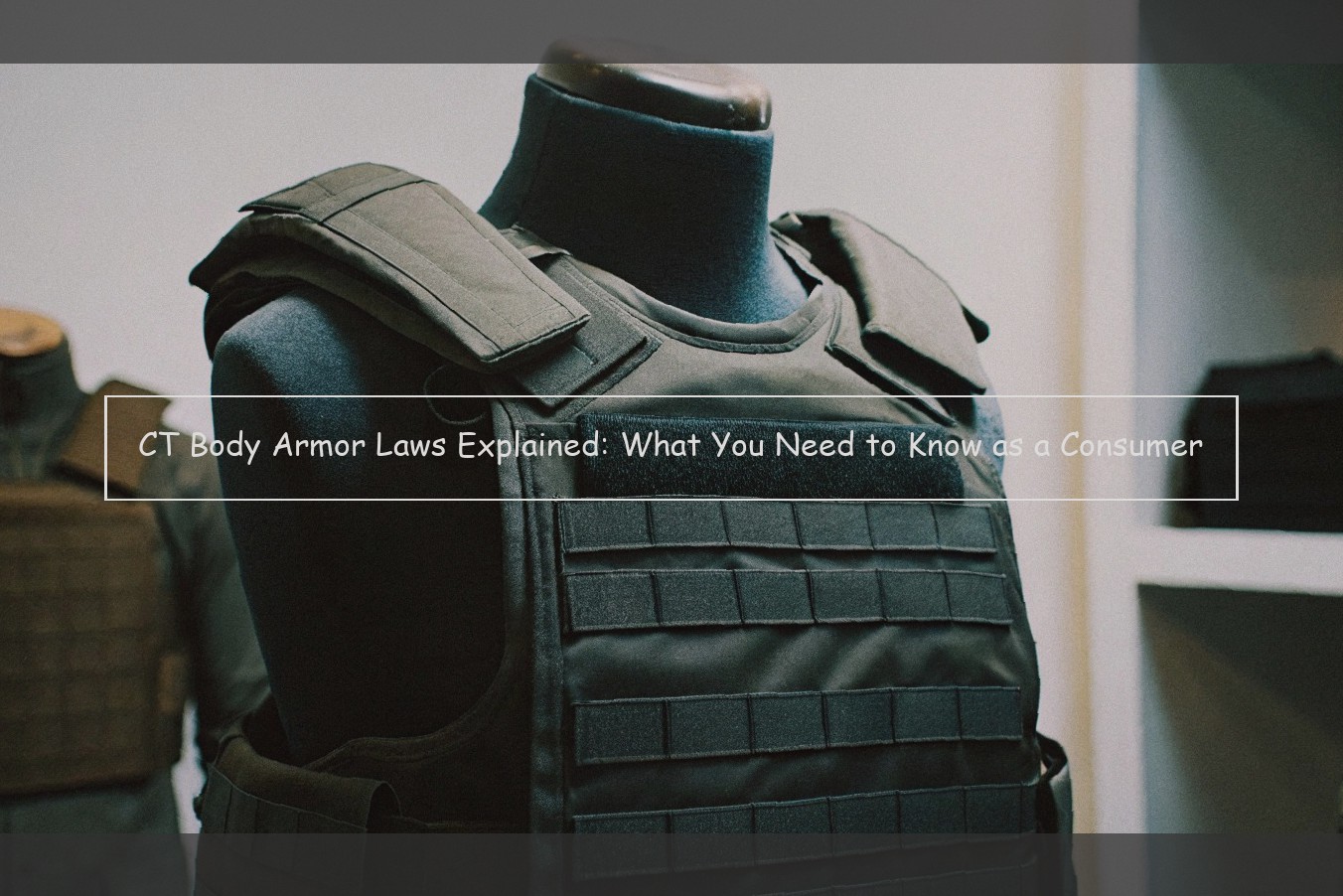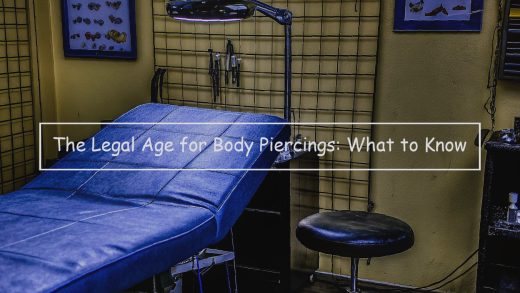
Overview of Body Armor Law in CT
In an attempt to address the needs for more body armor protection in recent years, local law enforcement departments nationwide have introduced their own set of regulations that can vary by state. It is useful, therefore, to understand how CT body armor laws work and where the lines are drawn for civilians purchasing and wearing armoring products.
Beginning with the Connecticut General Statutes, Sec. 29-37 (a), there is a general prohibition against wearing body armor toward the commission of a crime. If you are convicted of such behavior and it is proven that body armor was worn with criminal intent, you could be facing a fine of up to $3,500 (225, 12-month period). Beyond that, you could be facing a minimum of one year and up to 25 years in prison depending on whether a second or subsequent offense (225, life term) is involved.
Notwithstanding these provisions, however, there is also a notable exception to this law, in Sec. 29-37 (b), meaning you may legally wear body armor while being involved with law enforcement or surveillance as part of a larger investigation. Body armor is also allowed when considering of following:
• Protective services.
• Self-defense against criminal attack .
• Employment or activities on behalf of or in collaboration with governmental agencies.
• Non-government employment purpose, providing that it does not remain on your person indefinitely and does not create a threat to public safety.
• Legally owned and registered antique, classic, modified or collector’s vehicles.
One of the more specific points of clarification in both the Connecticut General Assembly and other related laws involve the prohibitions of wearing bullet proof vests. In the present day, civilian-approved armor can be purchased, owned, and worn as long as it is not in contrast with the listed exception noted above (Sec. 29-37 b). Effective October 1, 2013, there was also recently updated legislation — CT Bill 6597 (Reg. Sess. 2013) — that removed previous Legislation that provided for special exemptions from such prohibitions of body armor. Governor Dannel P. Malloy issued this new legislation, in particular, to clear up misconceptions about body armor use and criminal activity in general, and to update CT body armor laws.
For those considering body armor, the law must be carefully understood. If you are considering body armor for personal or commercial reasons, outfitting with the correct body armor vest is a legal and worthwhile investment.
Who is Allowed to Buy and Own Body Armor in CT?
Most residents of Connecticut appear to be exempt from state restrictions on the purchase and ownership of body armor. In fact, any Connecticut resident may legally purchase and own body armor unless the purchaser falls into one of three categories: Residents of surrounding states that wish to own body armor for lawful employment, professional, or business purposes are permitted to do so. To purchase body armor, these individuals must first obtain a permit from the Commissioner of the Department of Emergency Services and Public Protection. In Connecticut, such occupational professionals include: Lawful occupation includes private security and guard service providing they are registered in accordance with section 20-289 of the Connecticut General Statutes and operating in compliance with section 20-286b of the Connecticut General Statutes. Residents of Connecticut may apply for permits to purchase and own body armor for lawful purposes other than occupational use, subject to approval by the Commissioner of the Department of Emergency Services and Public Protection. The Department has the discretion to approve applicants who demonstrate a valid personal use for body armor, although, as a practical matter, only a limited number of uses are currently approved. If you are interested in obtaining a permit for personal use, your best bet is to consult with the Department directly regarding the reason for your need and availability for a permit application.
Restrictions on Use of Body Armor in Connecticut
Within the State of Connecticut, body armor is not allowed for the following purposes: (1) Commission of any crime against property or person during or following the commission of any such crime; (2) While a parolee under supervision, as defined in section 54-125e, is a member of a community correctional program; (3) While on parole for a conviction of a felony; (4) While released on probation under section 53a-30 for the commission of a misdemeanor; (5) At any police officer memorial service held pursuant to chapter 531; (6) In any courthouse in which a judicial branch facility security officer is required under section 51-248b to be stationed; or (7) In any secure facilities described in subsection (b) of section 54-108.
Penalties for Body Armor Law Violations in CT
Violating Connecticut’s body armor regulations may result in hefty fines and potential criminal charges against the violator. In some cases, fines may reach as high as $10,000.
The state may impose a fine of "at least ten times the amount of any purchase price," according to the Connecticut General Statutes. Repeat offenders may be charged with up to five years of imprisonment.
Specifically, a person who "purchases, owns, possesses or uses body armor in the commission of a class A, B or C crime that is a violation of section 53a-54a" may be charged with an additional class D felony on top of their other charges if they committed the crime while wearing the body armor. First offenses are usually charged as felonies, while second or subsequent offenses may be charged as a class D felony.
How does a Person Buy Body Armor in CT?
Body Armor [is] now defined in the Connecticut General Statutes in a new section 53-206aa. It is important to become familiar with this legislation because it introduces a number of important requirements and criminal penalties for defendants that are either inadvertently caught up or intentionally violating this new legislation.
First, you have to be aware that in order to purchase body armor, the business must be sold face to face and in person – not on the internet or through the phone. Secondly, the majority of other states do not have legislation like this on the books so you may be arrested and charged with a crime simply for purchasing a vest legally in another state. If the item is not purchased face to face in Connecticut, you are likely going to be caught up in an investigation.
On that note, if you are purchasing vests legally in another state, there is currently no way to determine if the person who actually receives the vest on the other end will be allowed to keep it as they must then turn it over to a law enforcement official to ensure that they are authorized to receive it.
So, how does one go about purchasing body armor in Connecticut? Under the new law, the following is required: (1) confirmation of the identity of the purchaser (to do this, a legitimate ID must be produced at the time of purchase); (2) a record of the date and time must be recorded; (3) a serial number of the body armor must be taken; and (4) a signature must be made by law enforcement confirming the purchase.
Other important notes on this new law: department issued body armor cannot be purchased by anyone other than those authorized – unlike firearms, which can be purchased without authorization. There is no database established yet to ensure that those who possess body armor legally on the outside are not actually criminals on the inside. Since a lot of tri-state cops work over the border, this law is also impractical in its current state.
Currently, a violation of this new law is only a Class D felony for any purchaser of body armor (which is legally defined as "a bulletproof vest or other garment or similar device that is made of synthetic fibers, metals or other materials that are intended to provide ballistic and trauma protection against firearm-firearm projectiles that can be worn on or around the body"), with the exception of those who are prohibited to have vests, like violent offenders and convicted felons or those who do not comply with the statute, who go through criminal prosecution under 53-206aa(f) . For those individuals, it becomes a Class C felony.
53-206aa(a) The State of Connecticut has adopted legislation that states it is illegal for the sales of body armor to be carried out by mail, internet, telephone or any internet website or order form/directories. Any order has to be made face-to-face with an actual person, including, but not limited to, a police officer.
53-206aa(c) In order to make a purchase of body armor legal, the following has to be done: buyers are now required to submit fingerprints and other identification (such as a state ID or driver’s license), along with the serial number and type of body armor (this can be verified through a list of approved body armor set forth by the Department of Emergency Services and Public Protection) to a law enforcement official.
53-206aa(d) A law enforcement official is required to do a background record check on the buyer and make sure that the buyer is authorized under the law to purchase body armor. The law states that those who are permitted to purchase such items are: (1) peace officers; (2) members of emergency services; (3) military personnel; (4) members of the national guard; (5) elected officials; (6) municipal workers; (7) judicial officials; (8) parole officers; (9) employees of correctional facilities or halfway houses; (10) employees of private companies or security firms that provide security for banks, retail stores, correctional institutions, etc.; (11) anyone who transports cash, tangible assets or securities for a business; (12) employees of casinos; (13) anyone who is requesting body armor for a "special purpose" (although, the law offers no definition on what a, "special purpose" would be), such as working undercover or protecting against domestic violence; (14) any other person or private entity that is approved by the Commissioner of Emergency Services and Public Protection.
53-206aa(e) The purchaser is then required to give all required information and sign off on the purchase of body armor to the issuing officer, which will be stored in a database that can be accessed by law enforcement on demand.
53-206aa(f) Purchasers of body armor will then have their fingerprints and photographs taken. If the person making the purchase is a convicted felon, they must turn the item over to law enforcement officials for immediate destruction.
CT Body Armor Law compared to Other States
When comparing Connecticut’s body armor laws to those of other states, some noticeable differences emerge. For example, in both Connecticut and New Jersey, the purchase of body armor by convicted felons is illegal. In contrast, there is no such prohibition in Pennsylvania, where a convicted felon may legally purchase body armor.
Interestingly, states such as Texas have provisions that actually exempt convicted felons from body armor purchase bans. The purchase and wearing of body armor is banned in Texas for individuals who have been convicted of specific felonies or who have completed a term of confinement for a felony conviction before the 10th anniversary of the day of release. However, this law also contains a provision that the ban does not apply to persons "who are wearing a distinctive uniform that identifies the person as a member of a rehabilitation program operated under the supervision of a division of the department [of criminal justice]."
Body armor ban statutes in Pennsylvania and New Jersey do not contain an exception for convicted felons that work in law enforcement. However, the purchase of body armor in New Jersey by an individual engaged in security guard services is permissible, provided the individual is licensed by the Governor of the State of New Jersey. This is comparable to Connecticut law, which allows the purchase of body armor by licensees under Chapters 534b (Private Detective Act) or 534d (Security Guard Services Act) of the Connecticut General Statutes.
While trade & commerce landscape in Pennsylvania and New Jersey is similar to that in Connecticut and New York, there are some interesting nuances that have arisen. Teamsters in Pennsylvania and New Jersey won a landmark case in 2002 when the U.S. Court of Appeals for the Third Circuit upheld the completely prohibitive ban on the wearing of body armor in "commercial motor vehicles" under 49 C.F.R. Section 392.100. The Teamsters’ case for a preliminary injunction tested the preemptive effect of statutory provisions barring any state law, rule or regulation regarding "interstate commerce" which can reasonably be expected to result in a reduction in the number of hours that individuals may drive or work. The Court held that the challenged regulation "clearly fails any field preemption analysis, because it is not saving lives and does not even tangentially involve interstate commerce." However, the Court left open the potential for a facial challenge under "occupational safety" field preemption.
So, while we have seen a much stronger "traditional" horizontal preemption argument, as a matter of practical application, it appears that neither "occupational safety" or "interstate commerce" field preemption is likely to prevail in any challenge to body armor bans.
Body Armor Laws Are Evolving in Connecticut
Discussion surrounding potential future changes to Connecticut law regarding body armor, like the rest of the country, has been heating up. Whether or not such a discussion leads to changes in state laws remains to be seen, but several issues are currently being considered that address loopholes in existing Connecticut law, as well as the need for clarification.
One such example of an apparent error needing correction in the current CT General Statutes is the definition of "body armor" in CGS § 29-37a. As written, the definition appears to be limited to "body armor that is designed for the protection of the torso." Body armor exists to protect other vital parts of the human body, including the legs, arms and head. The CT Legislature will need to review the current definition and update as necessary, if such is determined to be the case .
In addition to the definition issue, there has also been a call for clarification of the legal status of tactical body armor in Connecticut. Some manufacturers and retailers of such protective gear argue that tactical armor is not covered under Connecticut law governing bulletproof vests because of their additional features meant to provide greater protection to vulnerable parts of the human body. Clarification of such a gray area in the law may be needed, depending upon how such suits are classified under the current law. The above potential issues and others may lead to additional changes in Connecticut law.
From buying bulletproof vests to prepping for potential new legislation, Palmer Gadens Law firm is available to address your many concerns regarding body armor in Connecticut. Our lawyers have been providing legal assistance to Connecticut business for years in the area of battery legislation and beyond.



